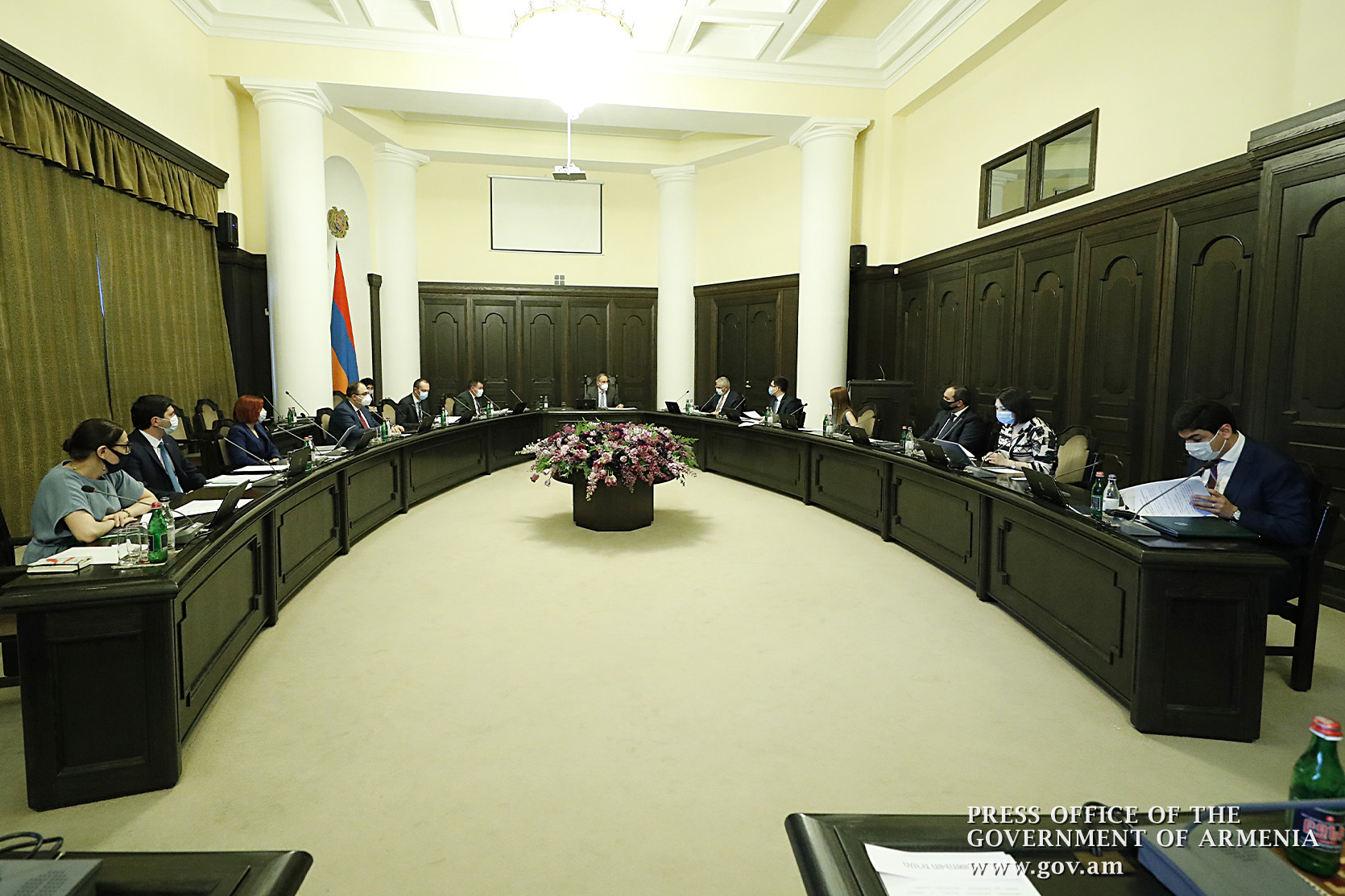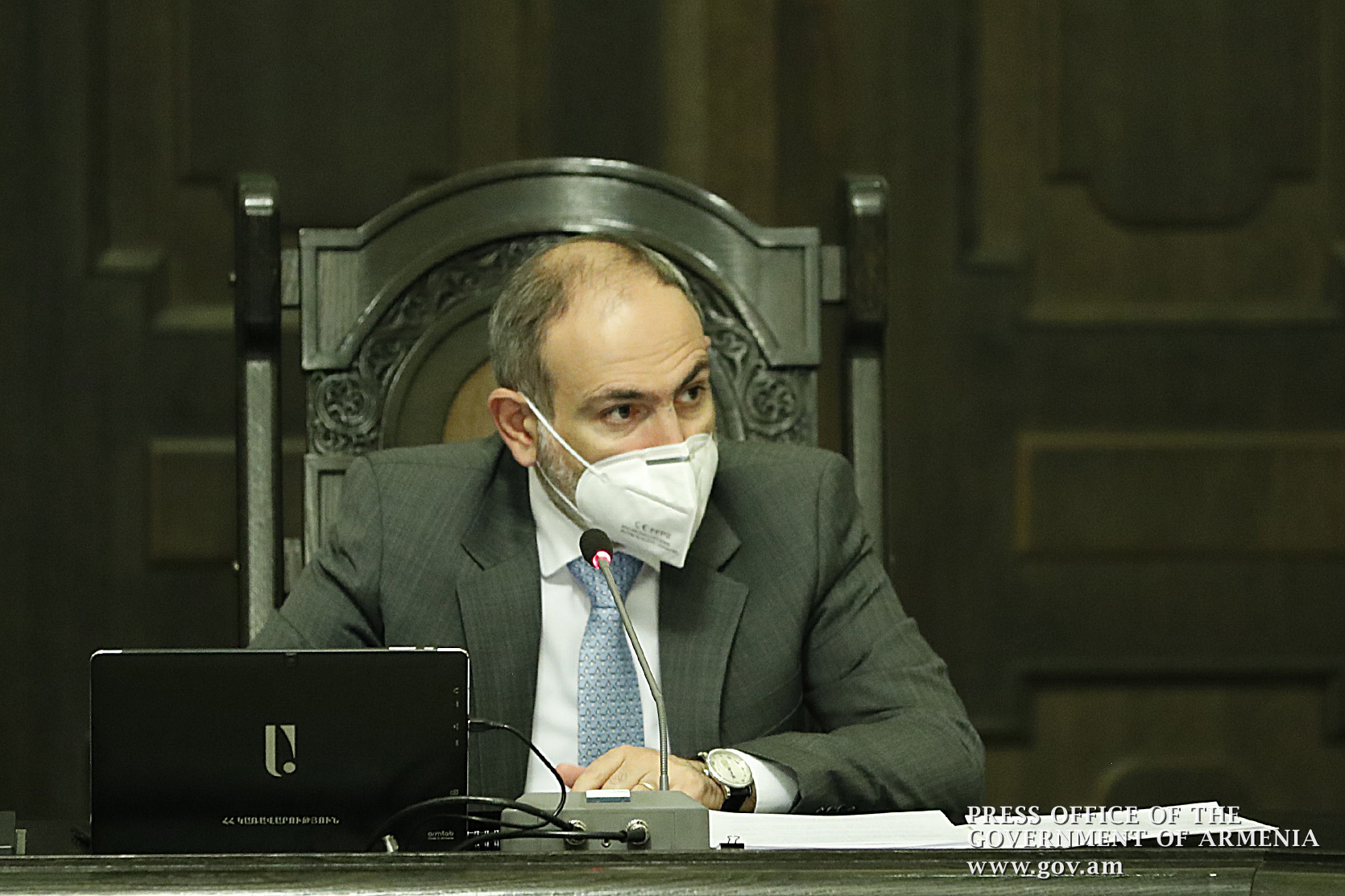Today, the Anticorruption Policy Council met in the Office of Government, chaired by Prime Minister Nikol Pashinyan.
A report on Armenia’s anticorruption strategy and on implementation of the planned activities in 2019 and in the 1st quarter of 2020 was presented as part of the 2019-2020 Action Plan. Minister of Justice Rustam Badasyan advised that the Report was published on the official website of the Ministry as early as in February, 2020. He noted that out of the planned 22 events, 10 were fully completed and 12 were partially completed, and there were no unfulfilled events.
Among the important achievements, the Minister highlighted:
● Formation of the Commission on the Prevention of Corruption in November 2019. The Commission has established criteria for checking the integrity of applicants for the position of judges, members of Constitutional Court, members of the Supreme Judicial Council, government officials, as well as other persons established by law, relevant legislative frameworks have been created, and the process of their implementation is currently underway
● Determination by law of the structure of confiscation of illegally acquired property. Following the selection procedure, candidates for prosecutors will be trained at the Academy of Justice starting next week, and the corresponding unit of the Office of Prosecutor General will exercise its function starting this September.
● Provisions criminalizing corruption in the new Criminal and Criminal Procedure Codes of the Republic of Armenia.
Rustam Badasyan noted that part of the measures, including the establishment of the rules of conduct, adoption of by-laws on the Commission for Prevention of Corruption, etc., were implemented partly due to the late formation of the Commission for Prevention of Corruption, therefore, the legal acts envisaged in the strategy have been developed, but not yet approved.
The Minister also noted that the draft law “On the Anticorruption Committee” will be submitted to the Prime Minister’s office next week, and the law “On Anticorruption Courts” will be discussed with interested international organizations, after which it will be submitted for public discussion.
As for the measures to be implemented during the first half of 2020, the interim results of the work done by state agencies are being collected at this stage, which in early July will be published on the websites of the Ministry of Justice and the Council on Anticorruption Policy.
The Prime Minister inquired about the process of studying integrity in the framework of introducing confiscation mechanisms for illegally acquired property. In response, President of the Anticorruption Commission Haykuhi Harutyunyan noted that in June 2020, on the basis of the integrity methodology, the commission verified the integrity of those persons included in the lists of candidates for confiscation of illegally acquired property, prosecutors and deputy prosecutors of Armenia coordinating this area, and introduced conclusions on the assessment of the integrity of 26 candidates: in two cases the assessment was negative, in eleven cases – positive with a reservation, and in thirteen cases – positive.
Prime Minister Pashinyan stressed that for the first time candidates for public positions had been exposed to integrity checks in our country, which is an important component in the fight against corruption. The Prime Minister emphasized that the anticorruption drive reflects the government’s political will, and all necessary funds will be provided for the full implementation of the planned activities. The Premier suggested raising public awareness about progress in the ongoing anticorruption reforms.
Rustam Badasyan next gave detailed information about the legislative package on improving the system of property and income declarations, introducing a system of declaring expenses, which is a continuation of the mechanisms related to the declaration system adopted by the National Assembly on March 25, 2020. In particular, it is proposed to introduce the institution of declaring expenses, establish the property actually owned by the declarant as property subject to declaration, develop a mechanism to control corruption risks after an official leaves office, lower the monetary threshold for valuable property, expand the range of declarants and a number of other changes.
The proposed regulations were discussed during the exchange of views that followed. The need for consistent steps to improve the system was emphasized. The Prime Minister noted that the introduction of an effective declaration system is one of the most important tools to ensure transparency and accountability, and it is necessary to consistently follow this path.
Anticorruption Commission President Haykuhi Harutyunyan presented the work carried out as part of the Anticorruption Strategy of the Republic of Armenia and its implementation plan for 2019-2022. She noted that the system of declaration of property, income and interests has been improved, a new sample declaration has been approved, the methodology of study and analysis of declarations, as well as selection criteria have been approved, the circle of declarants has been expanded, 3568 officials have submitted declarations and so on.
A methodology has been developed to check the integrity of persons to be appointed to public positions, candidates for judges, prosecutors, investigators, the rules of conduct for public servants and civil servants envisaged by the Law of the Republic of Armenia “On Public Service,” a comprehensive methodology for assessing corruption risks in the system of public administration. The Commission’s institutional development was completed: the development of a four-year activity program, the formation of the apparatus, etc.
Daniel Ioannisyan, Program Coordinator of the Union of Informed Citizens NGOs, addressed issues of preventing political corruption, including transparency of financing political and media activities. He presented the results of a research conducted by the Union of Informed Citizens NGO on the situation in the field of mass media operations, political parties, electoral mechanisms, proposed regulations and tools.
An interesting discussion took place on this topic. In the context of financial transparency and accountability, the importance of introducing mechanisms to identify real owners was emphasized. The Government and the National Assembly representatives referred to the work carried out as part of the reform agenda. The Prime Minister called on D. Ioannisyan to formulate proposals and submit them to the Ministry of Justice for further discussion.
Proposals on discussing at the forthcoming sessions public administration reforms, investment policy-related anticorruption mechanisms and other topics were voiced during the meeting.















